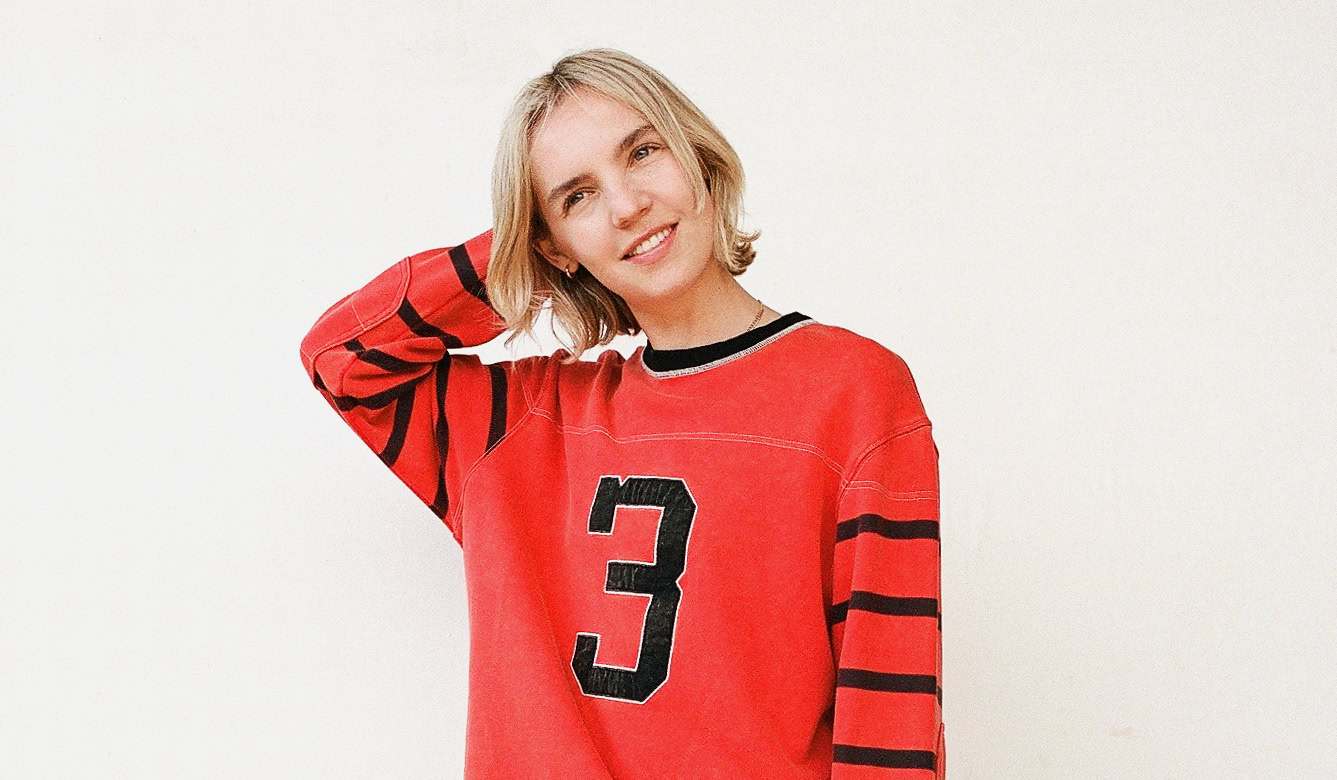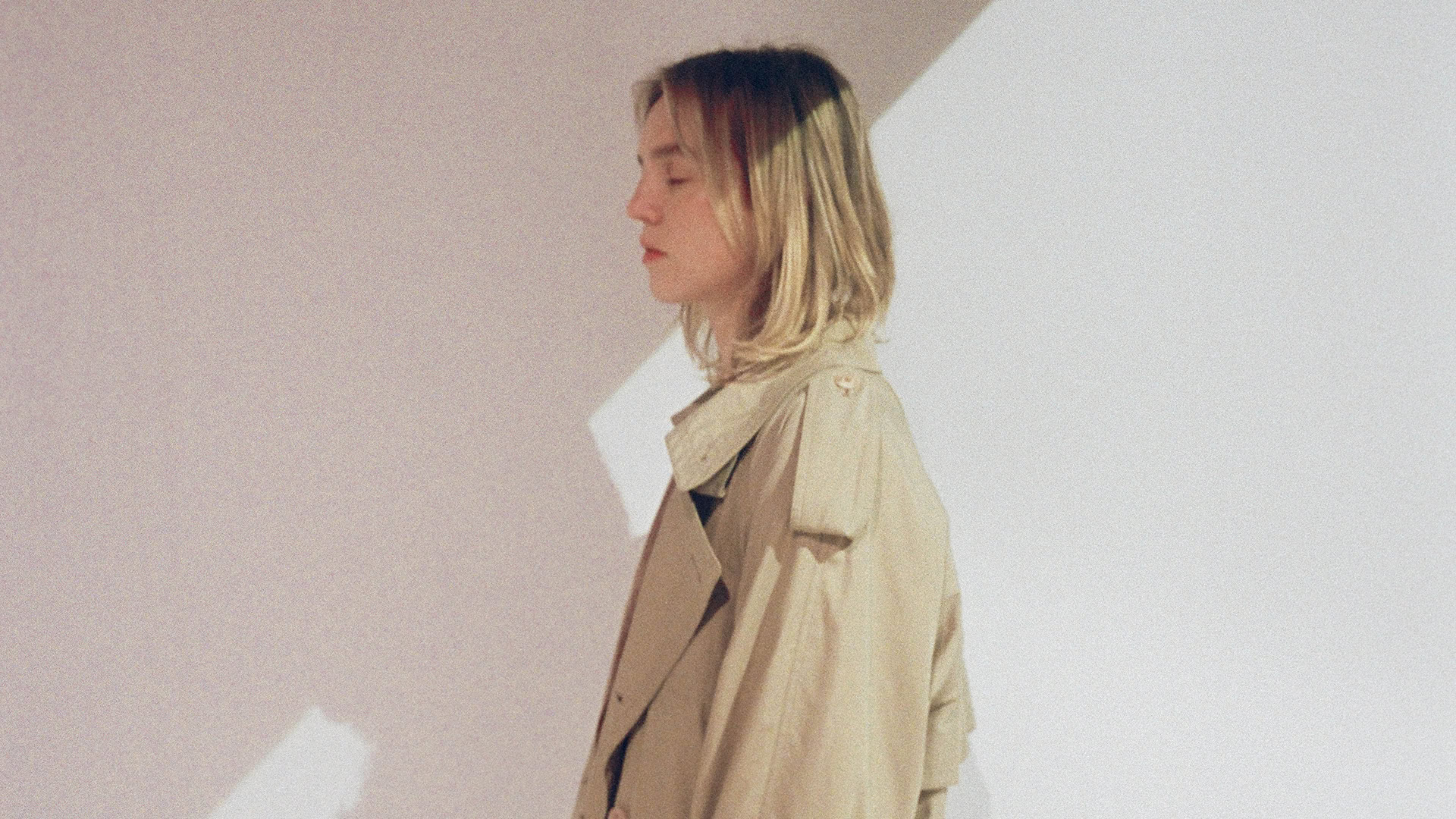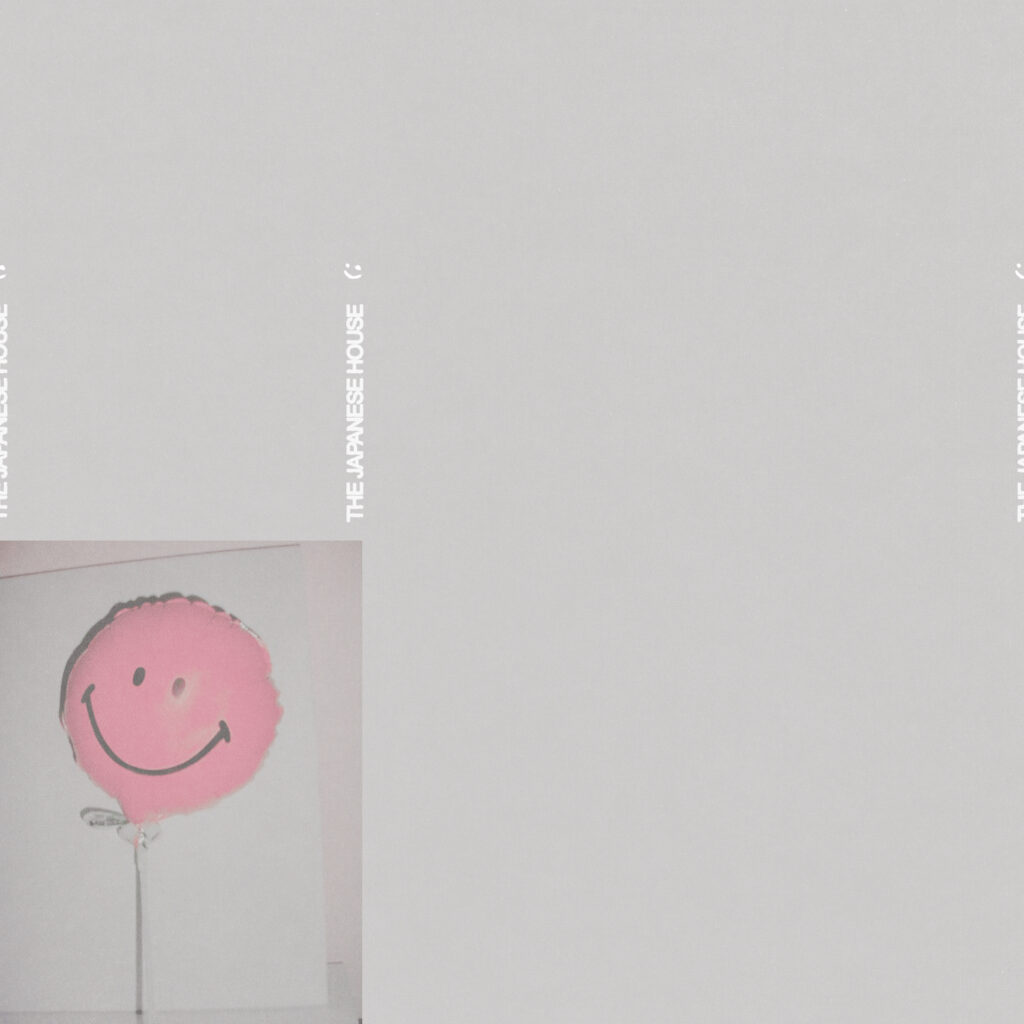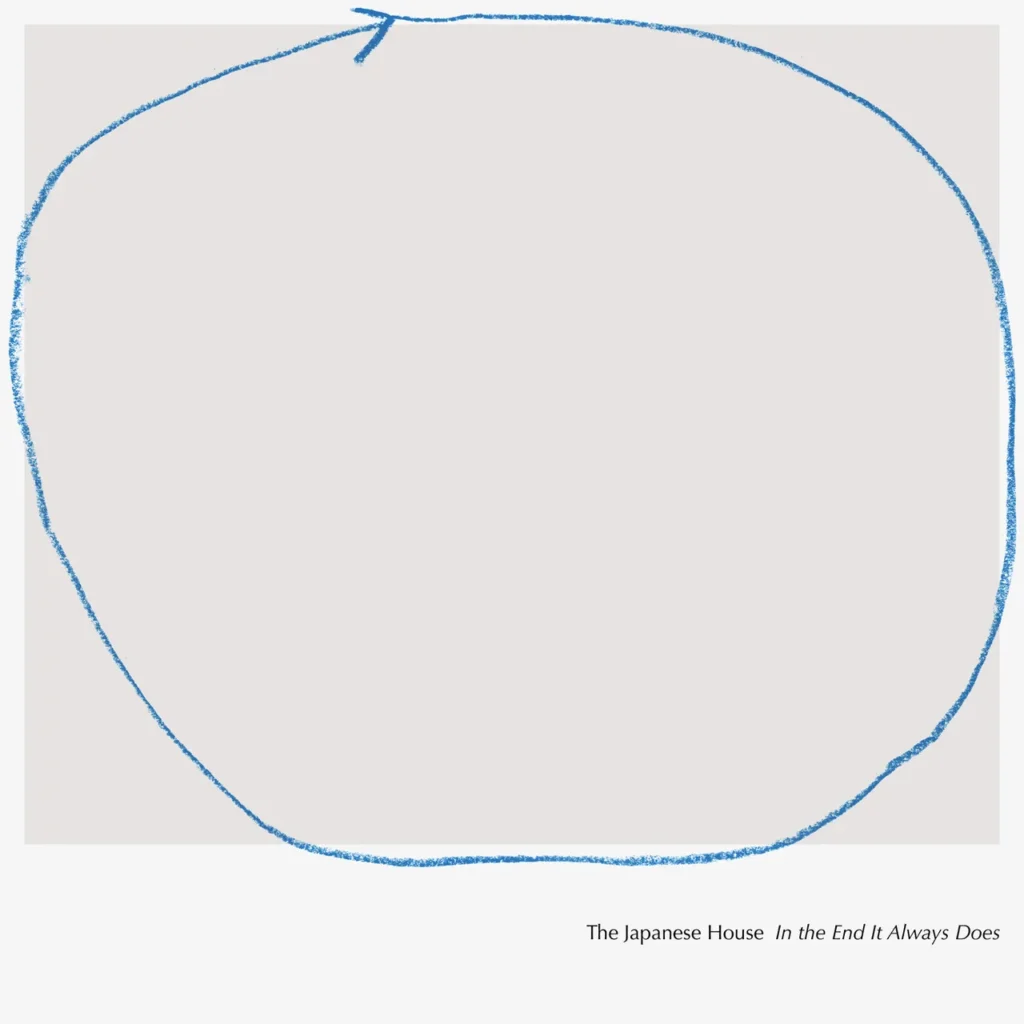
When the chorus breaks on the bright and sunny new single from The Japanese House, singer-songwriter Amber Bain plants both feet in her own good feelings. She’s on a plane from London to Detroit for a first meeting with an internet love connection, and there’s no room for metaphor when it comes to the exquisite vibes of their blooming romance: “I feel happier,” she sings. “I could be losing my mind / but something’s happening.”
Something was in fact happening. Now the English alt-pop star and the American woman who set her heart aflutter are engaged to be married, having both proposed to each other this past April Fools Day.
“It was really cute — very, very gay. The most lesbian thing in the world,” Bain, 29, says with a breezy chuckle. “Now I’m in my wedding-planning era. It’s crazy. I don’t feel I’m old enough, but I guess I am now.”
You’ll hear the same easy shrug of contentment in the music. A hairpin turn from the melancholic mood board of last year’s In the End It Always Does, the cheekily titled “: )” finds the emerging artist at her most unguarded and optimistic, spinning the raw sugar of young love into a delicate confection of synthesizers and twinkling country-fried guitars that practically weep with joy.
[caption id="attachment_107223" align="alignnone" width="1920"] Since launching her music project The Japanese House anonymously in 2015, English singer-songwriter Amber Bain has stepped into the spotlight with her aching blend of guitar-driven dream pop. Credit: Carissa Gallo[/caption]
Since launching her music project The Japanese House anonymously in 2015, English singer-songwriter Amber Bain has stepped into the spotlight with her aching blend of guitar-driven dream pop. Credit: Carissa Gallo[/caption]
Bain is no stranger to big feelings. Since her debut single “Still” crashed onto BBC Radio 1 nearly a decade ago, she has swept critics and listeners away with her gauzy brand of dream-pop wrapped in candid lyrics on yearning and desire. But while her 2019 debut Good at Falling and recent follow-up relish the catharsis of heartache, Bain’s latest offering as The Japanese House is lifted by something lighter.
“Contentment isn’t really such a strong pang in the chest as sorrow,” she says. “It’s easier for me to explore things that come from sorrow. It’s hard to find the poignance in happiness, and to write about it in a way that isn’t cheesy. Sometimes you have to kind of embrace the cheesiness of it.”
Boulder Weekly caught up with Bain on a Zoom call ahead of her Aug. 6 performance at Boulder Theater with ethereal New York indie-folk outfit Skullcrusher to talk about this new chapter, her lush sophomore LP and the songs she loves when life is good.
The following has been edited for length and clarity.
______________
Colorado is excited to welcome you back after your recent shows with Maggie Rogers at Red Rocks.
I loved that. Those shows were probably my favorite of the tour. Well, obviously it’s a great spot. Everyone says that about Red Rocks.
We’re partial to it ourselves. Will this be your first time playing Boulder?
Playing, yes. But when I did the Red Rocks show, I went on a hike in Boulder. So I’ve been there before.
Your new single [:)] has gotten a lot of play in the newsroom — perfect summer vibe. It’s you and brat out here.
Smiley Face Summer. I hope so! [laughs]
You and Charli [XCX] worked together on your last album. How did that come about?
She’s with my producer George [Daniel of The 1975], and she was kind of in and out of the studio a bit. I asked her to help me out on the track “Friends.” I was kind of struggling with not knowing what to do in the middle eight, and she is really good at putting melodies in the right places.
She came in and did some writing on it, which was fun. I got to see her in the studio. It’s weird, because she’s a friend — when I’m with her, I don’t feel like I’m with Charli XCX. But when I’m not with her, I’m like a child. I’m a massive fan. I love brat so much. I would die for brat.
[caption id="attachment_107165" align="alignleft" width="374"] Courtesy: Dirty Hit[/caption]
Courtesy: Dirty Hit[/caption]
I want to circle back to your new song, which exudes happiness in a really direct way. I was talking to Buck Meek of Big Thief earlier this year, and he described the subject as a sort of “taboo” for songwriters. Does it feel that way to you? Does writing happy songs require a different sort of vulnerability than sad ones?
I’ve not thought about it that way. This next album I’m writing is a love album. It’s all about falling in love, being in love, different aspects to that. I don’t find it hard to write about. With the song “Smiley Face,” I would find it hard not to write about that. I almost felt like I had to hold back on the happiness of it all. When you feel anything, it’s really hard not to utilize that for some sort of creative charge. It’s in some ways innate to put down what you’re feeling in a song — that’s kind of the only way to do it.
Extreme feeling often comes from sadness. It doesn’t necessarily come from happiness, because contentment isn’t really such a strong pang in the chest as sorrow. It’s easier for me to explore things that come from sorrow. It’s hard to find the poignance in happiness, and to write about it in a way that isn’t cheesy. Sometimes you have to kind of embrace the cheesiness of it. But joy doesn’t necessarily equate to cheesiness. Exploring that is interesting to me right now.
Like, you’ll watch a really sad Instagram video about a dog running into the road and getting hit by a car, and you’ll be crying. Then you’ll see another video that’s like, “This dog was sad and then got picked up by this lovely little old woman and now they’re best friends.” And you’ll still be crying, even though it’s happy. There’s still some sort of poignance in happiness.
What music do you listen to when you’re happy?
I love hyper-pop when I’m feeling really ecstatic: AG Cook and Charli XCX. That kind of euphoric, simple chord progression — there’s something kind of addictive about it. There’s also the song “Amamizu” by Masakatsu Takagi, which captures how I feel when I’m in a state of joy.
My girlfriend made me this playlist recently, and there’s an artist on it called Sparklet who has a song called “Mykonos, SA.” The production and the melody make me feel like I’m in tune with my own happiness.
Let’s get into your most recent album [In the End It Always Does]. Are you sick of talking about it yet?
Not at all. Remarkably, I’m not even sick of listening to it.
[caption id="attachment_107230" align="alignright" width="411"] Courtesy: Dirty Hit[/caption]
Courtesy: Dirty Hit[/caption]
People can put a lot of pressure on sophomore albums. Were you feeling that as you began to piece these songs together in the studio?
I wasn’t really even thinking about making an album — I was thinking about my life falling apart. It was much more inward. I obviously care about how well something does and being able to continue doing this while being respected as an artist. But when I’m making it, I genuinely don’t care about any of that stuff. You couldn’t force me to put a song on there I didn’t like just because I thought it might get No. 1.
My only goal with this album was to make something I really like. Because the previous one [Good at Falling], I don’t really like as much. It wasn’t really as honest of an expression of myself. I was doing more maths than I was channeling. With [In the End It Always Does], tastes change and there are bits I maybe wouldn’t write now. But I love it because it’s such an exact snapshot of what I was feeling at the time. I’m happy with all the choices I made.
It was really therapeutic to make that album whilst going through a breakup. It helped me decide what I needed to do during the most painful time, because I was able to focus all that pain into something. I was also working with two of my closest friends, and I felt like I was doing something worthwhile. When you feel really alone and depressed, it’s absolutely integral that you have a task or something you feel is meaningful. It did feel meaningful, and it still does.
You’ve said teaming with [queer co-producer] Chloe Kraemer is what set you on the path of your new record. Why was that relationship so important to your creative process?
It was really eye opening to work with someone who understands what I’m singing about. Obviously I always work with George [Daniel], and I always will. I love working with him. But there’s only a degree to which he can understand a gay relationship. A relationship between two women is very different from a straight relationship. To understand that like Chloe does is kind of game changing, because the production — the style, the way that we do it — all kind of all revolves around: “What is the song trying to do? What does it mean?”
There’s a million different ways you can produce a song, and you kind of want it to sound the best for what the song means. She really helps me connect with that side of the music more. We spend a lot of time talking, and that makes you feel so much more creative than EQ-ing a kick drum. Then before you know it, we’re reading poems to each other and I’m writing a song a week, which is rare for me.
“Boyhood” to me feels like the beating heart of the record. Can you tell readers a little about how that song came into the world, and what it’s about?
It was the last song I finished on the album. The music was around for ages, and the lyrics were sort of gibberish. Often when I write songs, I’ll just write a melody that sounds like words, but it’s not. It’s just kind of like word sounds. [“Boyhood”] was like that for ages, and music was all done. I had a plane booked to L.A. because I was like, “This album is going to be finished, and then I’m going to stay there for a month and have a holiday.” I was literally in the studio with my suitcases, and I had an hour left until I had to leave for the airport. I was like, “I better get these lyrics down.”
I knew the song was going to have something to do with being queer and growing up — how you are shaped by what happens to you and how you feel during your childhood. As a kid, I really wanted to be a boy. I would have chosen to have gender reassignment surgery if that was an option for me. I was so ashamed to be a girl. I hated it.
Obviously that has poured over into my adult life in different ways, but I feel much more confident with myself and who I am. I don’t really understand my gender, but I’m OK with not understanding it. So the lyrics talk about the unlimited pathways you could have had in your childhood, but in the end you just kind of have to accept the one you had. Once you embrace that, it’s much easier to accept yourself.
When I play that song live, it really shines for me because it connects with the audience so much. I have such a queer crowd now. People really become one during that song. Something weird happens, and it’s not really about me anymore. It’s about queer acceptance and joy.
______________
ON THE BILL: The Japanese House with Skullcrusher. 8 p.m. Tuesday, Aug. 6, Boulder Theater, 2032 14th St. Tickets here.
